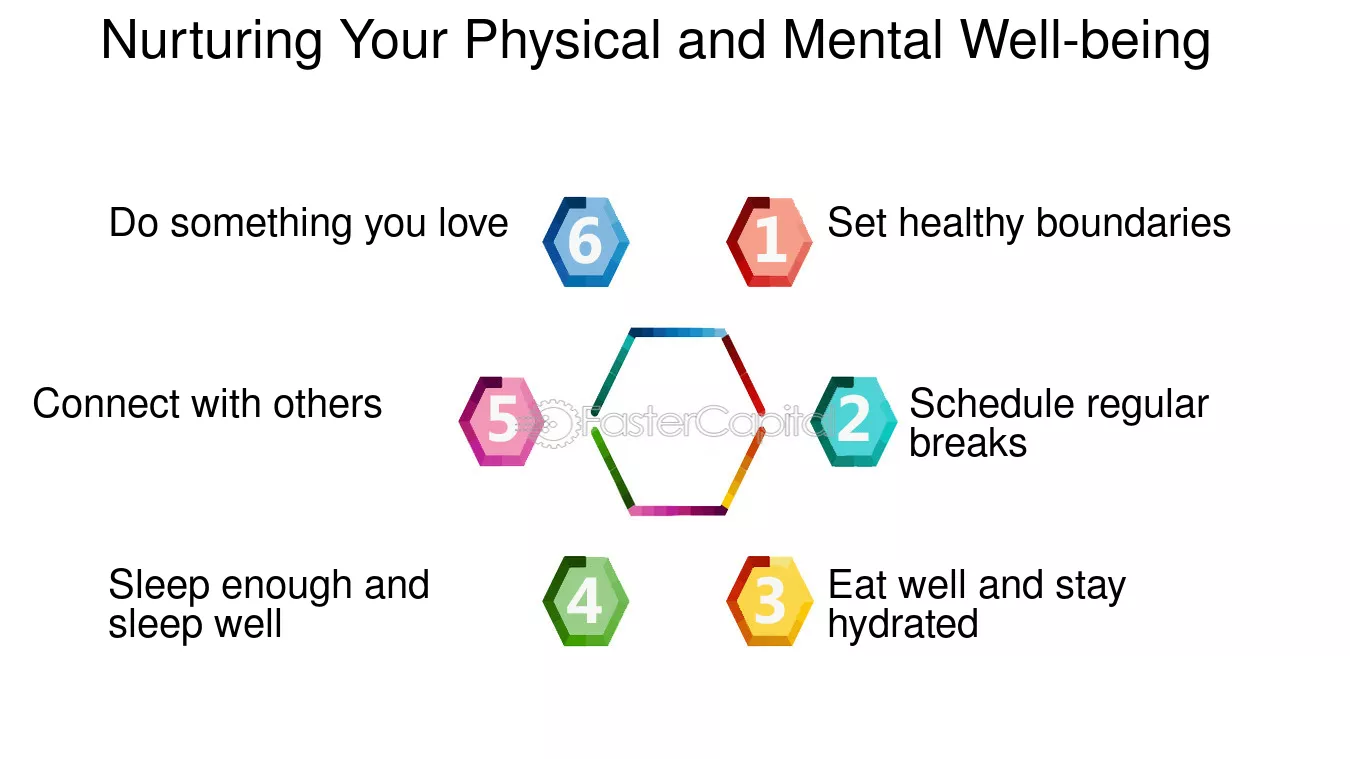
🧠 Feeling stressed, anxious, or mentally drained? You’re not alone. In today’s fast-paced world, mental health challenges affect millions of people – but there’s a powerful solution hiding in plain sight: fitness. While most people associate exercise with physical transformation, its impact on mental well-being is nothing short of remarkable.
Think of your mind and body as two dancers in perfect harmony. When one moves, the other responds. Science has shown that regular physical activity doesn’t just sculpt your body; it releases powerful mood-enhancing chemicals, reduces stress hormones, and even rewires your brain for better emotional resilience. Yet, despite these incredible benefits, many of us struggle to make the mind-body connection work in our favor.
In this guide, we’ll explore how to harness the transformative power of fitness for your mental health, from understanding the scientific connection between exercise and emotional well-being to creating a balanced routine that nourishes both body and mind. Let’s discover how the right combination of physical activities can become your strongest ally in maintaining mental clarity, emotional balance, and overall psychological wellness. 💪🧘♀️

Understanding the Fitness-Mental Health Connection
How Exercise Releases Feel-Good Hormones
Physical activity triggers the release of crucial neurotransmitters that directly impact your mental state. During exercise, your body produces:
- Endorphins – Natural pain relievers and mood elevators
- Serotonin – Regulates mood, sleep, and appetite
- Dopamine – Controls pleasure and reward centers
- Norepinephrine – Enhances focus and attention
The Science Behind Stress Reduction
Exercise creates a powerful physiological response that combats stress through multiple mechanisms:
| Stress Response | Exercise Impact |
|---|---|
| Cortisol Levels | Decreases stress hormone production |
| Blood Pressure | Reduces elevated pressure from stress |
| Muscle Tension | Releases physical stress accumulation |
| Sleep Quality | Improves rest and recovery |
Building Mental Resilience Through Physical Challenge
Regular physical activity strengthens not just your body but also your mental fortitude. Each workout presents an opportunity to overcome challenges, teaching valuable lessons in perseverance and goal achievement. This mental toughness translates to everyday life, helping you:
- Develop a growth mindset
- Improve self-discipline
- Enhance problem-solving abilities
- Build confidence through achievement
Regular exercise creates a positive feedback loop: as your physical fitness improves, your mental strength grows, making you better equipped to handle life’s challenges. Studies show that consistent exercise can be as effective as medication for mild to moderate depression and anxiety.
Now that we understand the fundamental connection between fitness and mental health, let’s explore specific physical activities that can maximize these psychological benefits.

Physical Activities That Best Support Mental Health
Mindful Movement: Yoga and Tai Chi
Integrating mindful movement practices into your fitness routine creates a powerful foundation for mental wellness. Yoga and Tai Chi combine physical postures with breath awareness, offering these key benefits:
- Reduced stress levels through controlled breathing
- Enhanced body awareness and mindfulness
- Improved flexibility and balance
- Better sleep quality
- Increased mental clarity
Cardio for Anxiety Relief
Regular cardiovascular exercise serves as a natural anxiety reducer. Here’s how different cardio activities impact mental health:
| Activity | Mental Health Benefits | Recommended Duration |
|---|---|---|
| Running | Releases endorphins, reduces stress | 20-30 minutes |
| Swimming | Promotes meditation through rhythm | 30-45 minutes |
| Cycling | Boosts mood, reduces anxiety | 30-45 minutes |
Strength Training for Self-Confidence
Weight training does more than build muscle; it builds mental resilience. Regular strength training:
- Enhances self-esteem through progressive achievements
- Develops mental toughness
- Improves body image
- Increases focus and determination
Group Sports for Social Well-being
Team activities provide unique psychological benefits while maintaining fitness:
- Build social connections and support networks
- Develop leadership skills
- Improve communication abilities
- Foster a sense of belonging
These diverse physical activities create a comprehensive approach to mental wellness. Each type offers unique benefits, allowing you to choose activities that resonate with your personal goals and preferences. As we explore creating a mind-body workout routine, you’ll learn how to combine these activities effectively.

Creating a Mind-Body Workout Routine
Balancing Different Exercise Types
A well-rounded fitness routine should combine these essential elements:
- Cardio (30%): Running, swimming, or cycling
- Strength training (30%): Weight lifting or bodyweight exercises
- Flexibility work (20%): Yoga or stretching
- Mindful movement (20%): Tai chi or walking meditation
Setting Realistic Goals
| Time Frame | Physical Goals | Mental Goals |
|---|---|---|
| Weekly | 3-4 workouts | 2 mindfulness sessions |
| Monthly | Increase workout duration by 5 min | Reduce stress levels by 10% |
| Quarterly | Master 2 new exercises | Establish consistent sleep pattern |
Tracking Mental Health Progress
Implement these tracking methods to monitor your mind-body progress:
- Maintain a mood journal correlating with workout days
- Rate energy levels pre/post exercise (scale 1-10)
- Track sleep quality using a fitness tracker
- Document stress levels throughout your fitness journey
Start with 20-minute sessions three times weekly, gradually increasing duration and intensity. Focus on exercises you enjoy to build consistent habits. Use a fitness tracker to monitor both physical metrics and sleep patterns, which directly impact mental well-being. Remember to adjust your routine based on energy levels and emotional state.
Now that you have a structured approach to mind-body fitness, let’s address common mental barriers that might impact your exercise journey.

Overcoming Mental Barriers to Exercise
Breaking Through Exercise Resistance
Many people face internal resistance when starting their fitness journey. Combat this by:
- Starting with micro-commitments (5-minute workouts)
- Setting realistic, achievable goals
- Finding workout styles that feel enjoyable
- Partnering with a workout buddy
Managing Workout Anxiety
Gym anxiety and performance fears can be significant hurdles. Here’s how to manage them:
| Anxiety Trigger | Solution Strategy |
|---|---|
| Unfamiliar equipment | Schedule orientation session |
| Crowded spaces | Visit during off-peak hours |
| Fear of judgment | Start with home workouts |
| Performance concerns | Focus on personal progress |
Building Sustainable Habits
Create lasting exercise habits by:
- Attaching workouts to existing daily routines
- Using fitness trackers to monitor progress
- Celebrating small wins consistently
- Establishing a regular fitness schedule
Finding Your Motivation Triggers
Identify personal motivators that resonate:
- Track progress through photos or measurements
- Create rewards systems for hitting milestones
- Share goals with accountability partners
- Keep a motivation journal
Remember that consistency matters more than perfection. Focus on building a sustainable personal fitness plan that aligns with your lifestyle and preferences. Starting small and gradually increasing intensity helps prevent overwhelm and builds confidence. With these strategies in place, you’re better equipped to tackle the mental roadblocks that often derail fitness journeys. As you develop stronger exercise habits, you’ll find it easier to maximize the mental health benefits that regular physical activity provides.

Maximizing Mental Health Benefits
Optimal Exercise Duration and Frequency
To maximize mental health benefits, aim for 150 minutes of moderate exercise or 75 minutes of vigorous exercise weekly. Break this down into:
- 30-minute sessions, 5 days per week
- 3-4 sessions of strength training
- Daily 10-minute movement breaks
| Exercise Intensity | Duration | Weekly Frequency | Mental Benefits |
|---|---|---|---|
| Moderate | 30 min | 5 days | Stress reduction, mood improvement |
| Vigorous | 25 min | 3 days | Anxiety relief, confidence boost |
| Light | 10 min | Daily | Mental clarity, focus enhancement |
Combining Exercise With Mindfulness
Integrate mindfulness into your fitness routine through these proven techniques:
- Practice breath awareness during cardio sessions
- Incorporate yoga or tai chi for mind-body connection
- Focus on muscle engagement during strength training
- End workouts with 5-minute meditation
Recovery and Mental Restoration
Mental benefits multiply when proper recovery is prioritized. Essential recovery practices include:
- 7-8 hours of quality sleep
- Active recovery days with gentle movement
- Regular stretching or mobility work
- Stress-reduction activities between workouts
Using a fitness tracker can help monitor your progress and maintain consistency. Track both physical metrics and mood changes to identify what works best for your mental well-being. As you implement these strategies, remember that consistency matters more than perfection. The key is finding a sustainable routine that supports both your physical and mental health goals.
Now that you understand how to optimize your fitness routine for mental health, you can create a personalized plan that serves both body and mind.

Regular physical activity is more than just a path to a healthier body – it’s a powerful tool for transforming your mental landscape. From reducing stress and anxiety to boosting mood and cognitive function, fitness serves as a natural antidepressant that can enhance your overall quality of life. By incorporating mindful movement into your daily routine and choosing activities that bring you joy, you can create a sustainable approach to both physical and mental wellness.
Remember that every step counts on your journey to better mental health through fitness. Start small, stay consistent, and be patient with yourself as you develop healthy habits. Whether it’s a morning yoga session, an afternoon walk, or an evening workout, your commitment to physical activity is an investment in your mental well-being that will pay dividends for years to come.




